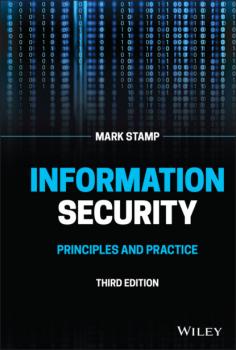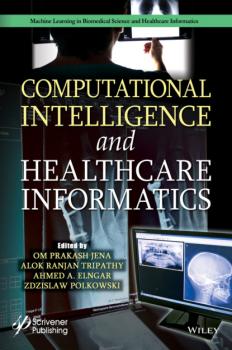John Wiley & Sons Limited
Все книги издательства John Wiley & Sons LimitedAfter Lockdown
After the harrowing experience of the pandemic and lockdown, both states and individuals have been searching for ways to exit the crisis, many hoping to return as soon as possible to ‘the world as it was before the pandemic’. But there is another way to learn the lessons of this ordeal: as inhabitants of the earth, we may not be able to exit lockdown so easily after all, since the global health crisis is embedded in another larger and more serious crisis – that brought about by the New Climate Regime. Learning to live in lockdown might be an opportunity to be seized: a dress-rehearsal for the climate mutation, an opportunity to understand at last where we – inhabitants of the earth – live, what kind of place ‘earth’ is and how we will be able to orient ourselves and exist in this world in the years to come. We might finally be able to explore the land in which we live, together with all other living beings, begin to understand the true nature of the climate mutation we are living through and discover what kind of freedom is possible – a freedom differently situated and differently understood. In this sequel to his bestselling book Down to Earth , Bruno Latour provides a compass for this necessary re-orientation of our lives, outlining the metaphysics of confinement and deconfinement with which we will all be obliged to come to terms by the strange times in which we are living.
The Parental Leave Playbook
Support your growing family without losing professional ground—a proven approach The Parental Leave Playbook helps parents take control of their leave and make the most of what's considered a career timeout, but is actually a vital «time-in» for your life. If you're an expecting or new parent concerned about how your leave and return plans will affect your visibility, candidacy for promotion, work relationships, and performance (not to mention your identity and home life), this book will guide you into the smoothest transition possible. Most importantly, this book will help you as you grow and strengthen yourself and your family while remaining a professional. In The Parental Leave Playbook , you'll learn Dr. Amy Beacom's innovative R.E.T.A.I.N. framework and the three-phase, ten-touchpoint model, to coach yourself through the leave process. Beacom identifies the critical points before, during, and after leave where parents and managers must work together, and explains how parents can facilitate success by finessing the way they approach their manager and colleagues. These models are supported by case studies from the author's work in the field with leading organizations like Microsoft, and supplemented by resources such as the evidence-based Parental Leave Transition Assessment (PLTA) sample report, leave action plan templates, reflection prompts, and development exercises to enhance self-awareness and skills. You'll learn how to: Communicate your parental leave plans effectively and at the right time Set expectations with managers and colleagues to ensure a smooth transition Learn how to maintain visibility, avoid being replaced, and continue your upward career trajectory during your parental leave and beyond Grow and strengthen your family without sacrificing your professional gains All working parents-to-be can benefit from the ideas and proven tools in this direct and practical book.
Project Benefit Realisation and Project Management
Dispels the confusion between project management success and project success, showing how project sponsors can govern their projects to succeed in delivering the strategic benefits originally envisaged Project management success does not automatically lead to project success. Many large projects fail to live up to expectations, with between half and two-thirds of large projects either failing to deliver or delivering few strategic benefits. Traditional project management resources focus on delivering a project on time and on budget, yet they fail to supply top managers, many of whom find themselves in the role of accidental project sponsors, with guidance on how to govern their projects to succeed. Project Benefit Realisation and Project Management: The 6Q Governance Approach bridges the strategy to performance gap by providing boards, senior managers and project sponsors with the six critical questions necessary to diagnose the health of any project. Presenting a systematic framework developed from research cases of successful and unsuccessful projects in various types of organisations, this practical guide enables those in top management to determine if their strategy or policy is on track and to assess whether a project is likely to deliver the expected benefits. The text features real-world examples illustrating how concepts can be applied to different types of projects in engineering, construction, information technology, business transformation and many others. This must-have guide is designed to help top managers and other stakeholders: Clarify the link between business outcomes, benefits, and strategy to evaluate where effort should be directed Assess how much behavioural change is required to effectively implement strategy and realise desired benefits Select a project sponsor committed to influencing key stakeholders to make necessary changes and intercede to resolve issues as they arise Establish how success will be measured before a project begins, to gauge sponsor commitment and ensure project goals are not changed to match whatever is achieved Ask if the right culture is in place to ensure all relevant information is being reported Determine teams’ ability to adapt and change plans in response to issues arising in the project Monitor if the project is on track to realising the benefits and have a process in place to cancel failing projects Project Benefit Realisation and Project Management: The 6Q Governance Approach is an indispensable volume for board members, project sponsors, project advisors and those in senior positions who find themselves in the role of accidental project sponsors.
Computational Intelligence and Healthcare Informatics
AI techniques are being successfully used in the fields of health to increase the efficacy of therapies and avoid the risks of false diagnosis, therapeutic decision-making, and outcome prediction in many clinical cases, thanks to the rapid advancement of technology. The acquisition, analysis, and application of a vast amount of information required to solve complex problems is a challenge for modern health therapies. The 21 chapters in this integrate several aspects of computational intelligence like machine learning and deep learning from diversified perspectives. The purpose of the book is to endow to different communities with their innovative advances in theory, analytical approaches, numerical simulation, statistical analysis, modeling, advanced deployment, case studies, analytical results, computational structuring and significance progress in healthcare applications.
Geoengineering
Stabilizing the world’s climates means cutting carbon dioxide pollution. There’s no way around it. But what if that’s not enough? What if it’s too difficult to accomplish in the time allotted or, worse, what if it’s so late in the game that even cutting carbon emissions to zero, tomorrow, wouldn’t do? Enter solar geoengineering. The principle is simple: attempt to cool Earth by reflecting more sunlight back into space. The primary mechanism, shooting particles into the upper atmosphere, implies more pollution, not less. If that doesn’t sound scary, it should. There are lots of risks, unknowns, and unknowables. In Geoengineering: The Gamble , climate economist Gernot Wagner provides a balanced take on the possible benefits and all-too-real risks, especially the so-called “moral hazard” that researching or even just discussing (solar) geoengineering would undermine the push to cut carbon emissions in the first place. Despite those risks, he argues, solar geoengineering may only be a matter of time. Not if , but when . As the founding executive director of Harvard’s Solar Geoengineering Research Program, Wagner explores scenarios of a geoengineered future, offering an inside-view of the research already under way and the actions the world must take to guide it in a productive direction.
Amplifiers
Discover how to enable strategic change efforts by relying on your best people In Amplifiers , entrepreneur and expert management and technology consultant Tom Finegan delivers an insightful new way to think about human behavior in the execution of corporate transformations. Through an exploration of the career journeys of several leaders and analyses of “True Amplifiers” in action, the book demonstrates how to deliver strategic and transformative change by relying on the efforts of key, exemplary followers. This important book: Explains the different ways that being a true amplifier is experienced by different ethnicities and genders Describes the “Cell Concept” of amplifiers, and how they interact with other stakeholders of your organization Discusses the work of amplifiers across global industries and organizations Perfect for executives, managers, and other business leaders responsible for change management and strategic execution, Amplifiers also belongs on the bookshelves of anyone who hopes to contribute to or lead organizations as they change direction.
Lifestyle Medicine
Written by an interdisciplinary and multinational team of distinguished medical doctors and authors, Lifestyle Medicine presents a collection of multiple-choice questions (MCQs) designed to help prepare a new generation of clinicians with the necessary knowledge to practice Lifestyle Medicine safely and confidently. Ideal for anyone preparing for examinations in the new specialty of Lifestyle Medicine at the post-graduate level, and especially useful for those studying for the Diploma in Lifestyle Medicine, taking the American Board of Lifestyle Medicine or International Board of Lifestyle Medicine exams, you’ll find every key aspect of Lifestyle Medicine in this book. 25 questions covering an introduction to lifestyle medicine, including definitions, the difference between lifestyle medicine and other fields, and Physician’s Competencies in the practice of lifestyle medicine 62 questions covering the fundamentals of health behaviour change 47 questions covering key clinical processes in lifestyle medicine, including the classification of different lifestyle-related illnesses, measures of fitness, and fitness testing options 88 questions covering nutrition science, assessment, and prescription, including food labels and prescribing nutrition And much, much more: a total of 531 questions covering all key aspects of lifestyle medicine Perfect for clinicians in virtually any specialty aiming to develop expertise in lifestyle medicine, Lifestyle Medicine will also earn a place on the shelves of nurses and other allied health professionals, including pharmacists, dietitians and nutritionists, health educators, researchers, health coaches, and occupational therapists.









